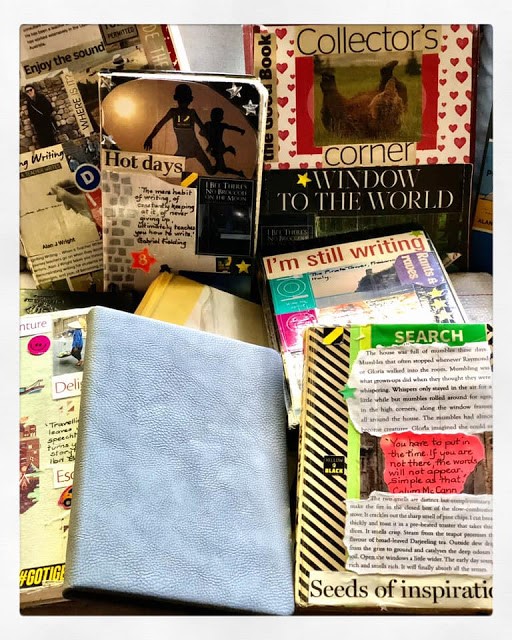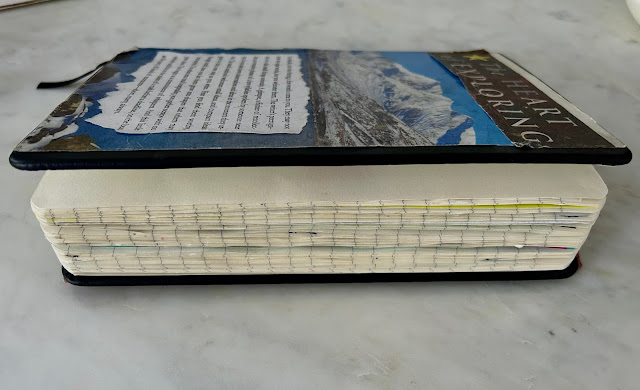The Need To Feed Your Writer's Notebook
When discussing writer's notebooks with inexperienced writers, I frequently refer to the idea of 'feeding' them. Smiles immediately appear on the faces of the young writers seated before me.
I further explain the notion of feeding the notebook by using the analogy of a garden where the plants are well fed and tended. Plants flourish when their care is made a priority. A garden neglected soon withers and dies. A failure to thrive sets in.
I have seen this in gardens and with writer's notebooks. The enthusiasm that launched these ventures soon fades -and the nourishment required to sustain them falls away. Where notebooks are concerned, malnutrition is more likely to occur where teachers are not actively maintaining their own writer's notebooks.
What do we feed our notebooks? All those small and juicy thoughts, ideas and observations collected as we negotiate our various worlds. This is the rich detail we must gather in our notebooks. Detail that stimulates more growth and development of potential writing projects.
I share my own writer's notebooks with young writers quite mindfully. I want them to see for themselves the collected details of my own gathering and how they spark more expansive writing ideas. My commitment to gathering ideas is such, my notebook is quite literally bulging with potentially fertile possibilities for writing. The more detail I gather across these pages, the more options present for personal writing projects I might consider. I prefer my notebook brimming with health, certainly not under-nourished.
Sharing notebooks with inexperienced writers is important. Not only do they get to see the breadth of ideas garnered by a more expeirenced writer, they also get to see the all important process of how and where those ideas have emerged. Writing in a notebook becomes less mysterious, more accessible, to the developing writer.
Regular opportunties to write across the pages of their notebooks become essential if we want young writers to engage with writing beyond a superficial level. They need to see those blank notebooks pages as hungry for their words. The notebook is issuing an invitation to the writer. A young writer once informed me, ' I love to cover the page in my words. I love to see the blank white page disappear under my words.'
Here are some words I believe are essential for young writers to hear.
'Don't forget to show your notebook you appreciate what it can do you as a writer, by regularly feeding it your best words.'








Comments
Post a Comment